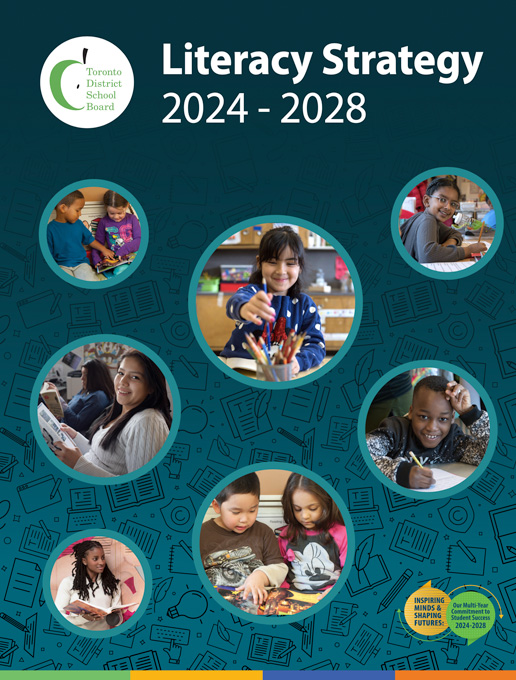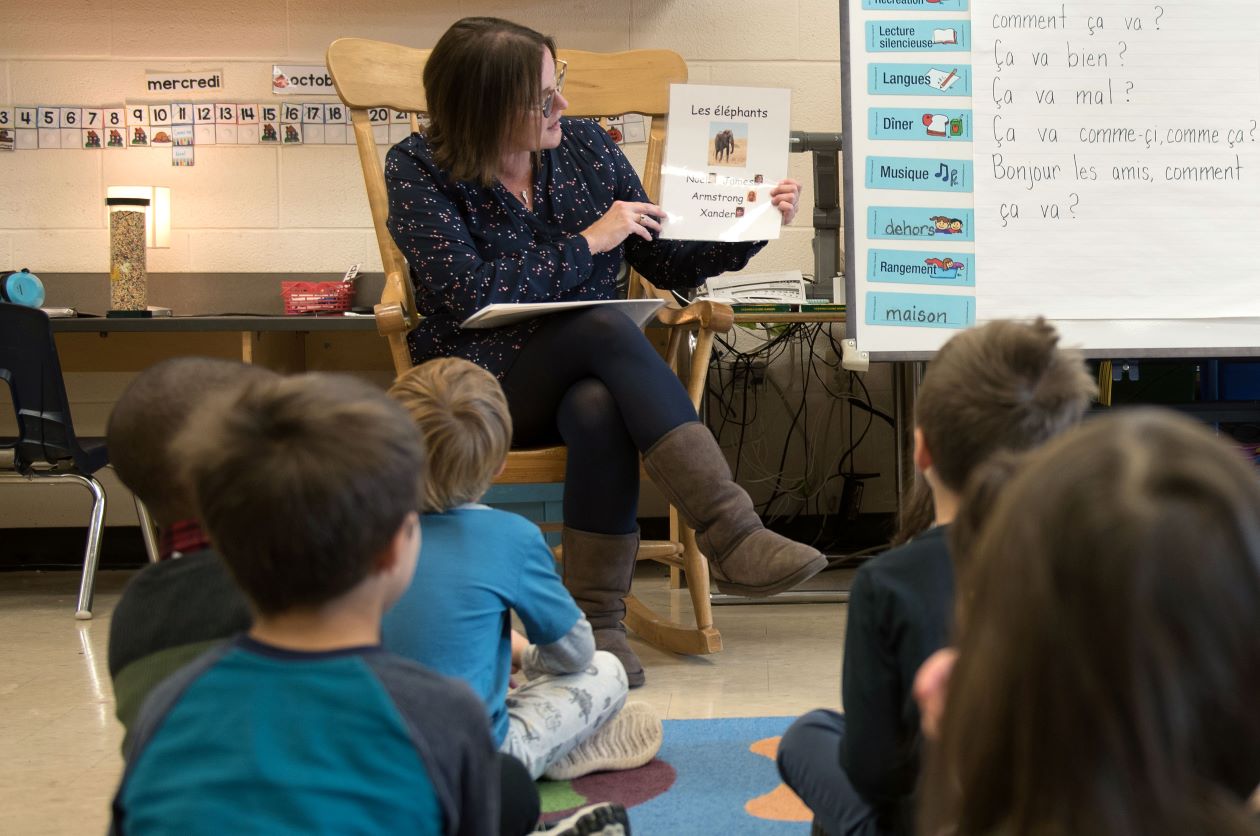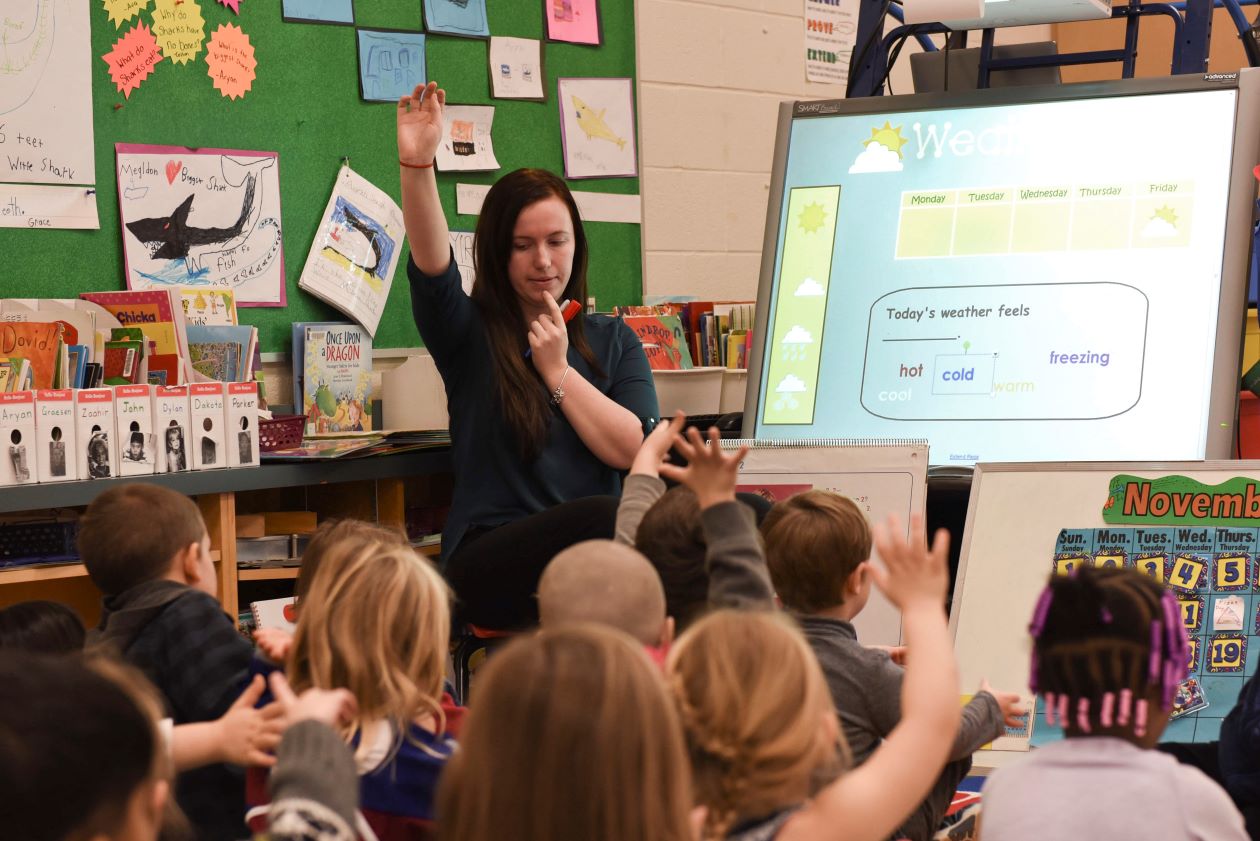The evolving social and economic contexts within which students learn and live require proficiency across different forms of literacy, otherwise known as multi-literacies. The TDSB aims to cultivate and inspire curious and innovative learners and citizens who use their critical thinking skills as readers, writers and communicators, to engage critically in the world around them and thrive in this evolving, diverse and complex global context.
Results from the 2023-24 Education Quality and Accountability Office assessment show that:
- A total of 70 per cent of grade three students and 81 per cent of grade six students achieved at or above the provincial standard (Level 3/4) in reading.
- A total of 63 per cent of grade three students and 80 per cent of grade six students achieved at or above the provincial standard (Level 3/4) in Writing.
As students become more fluent readers and writers, the proportion of students achieving at or above the provincial standard increases from grade three to six. With respect to the Ontario Secondary School Literacy Test (OSSLT), 84 per cent of fully participating First-Time Eligible students were successful in 2023-24, which is comparable to provincial results.
Overall, the majority of TDSB students are doing well in literacy. The new TDSB Literacy Strategy (described here) will support that all students to achieve their literacy potential.
Supporting high levels of achievement for all students
Literacy is a pathway to excellence, equity, and high achievement. With that in mind, the TDSB Literacy and Early Years team is excited to share some of the ways the team is meeting the goal of ensuring high levels of achievement, success, and personal development for all students in the TDSB, through the initiatives listed below.

The new Literacy Strategy: 2024-28
The TDSB has introduced its new TDSB Literacy Strategy (2024-2028). With support from all education partners, including families, community, educators, leaders and students, the literacy strategy will support all students (regardless of identity) to create, communicate, read, write and think critically to succeed in school and life.
The strategy includes a framework that identifies the goals, actions and monitoring indicators related to the Learner, Educator, and Learning Environment. These goals and actions will be implemented across the system, in both elementary and secondary schools. The Goals identified in the strategy are grounded in the following:
- The Student Achievement Plan
- The Achieve Pillar of the Multi-Year Strategic Plan
- Key big ideas from the Ontario Kindergarten Curriculum
- Ontario Language Curricula (grades one to nine), including relevant recommendations from the OHRC Right to Read report
- The Vision of the Literate Learner
As a next step, the TDSB Literacy Team will create specific action plans for each grade range (All Learners K-21, Early Years and Later Literacy) to meet the goals outlined in the strategy and Multi-Year Strategic Plan.
Our French language programs
In the Toronto District School Board, all students are encouraged to participate in French Language Programs, recognizing that every student has the potential to learn an additional language and benefit from its positive impact on literacy and overall learning.
Learning an additional language not only enhances general learning skills, but it broadens career prospects, fosters cultural understanding, and helps develop plurilingual global citizens. Research also shows that proficiency in an additional language strengthens first-language abilities and generally improves reasoning, problem-solving, and creative thinking skills.
The French Department is dedicated to supporting educators through professional learning and capacity building, ensuring the effective planning and implementation of additional language teaching strategies, aligning with the TDSB’s Multi-Year Strategic Plan.
The French Department works to build educator capacity and inclusive, responsive learning environments that reflect the diverse backgrounds and experiences of TDSB students. It does this by facilitating system-wide professional learning, focusing on effective early reading instruction and later literacy, using layered assessment tools and implementing culturally relevant and responsive pedagogy.
The focus on the selection and integration of culturally responsive, identity-affirming resources allows all students to explore their own intersectional identities and the diverse experiences of others around the world.
Through collaborative inquiry, supported by the Action-Oriented Approach to language learning and our ongoing work with Academic Pathways in Core French, we aim to foster inclusive and welcoming learning spaces where every additional language learner experiences joy, engagement, and belonging, and connects language learning to their own lives.

Investing in teacher expertise: the language curriculum and grade nine English professional learning series
The new Language Curriculum rolled out this year for Grade nine English (ENL1W). Over 700 educators took part in professional learning to deliver the curriculum for grades one to eight and the de-streamed grade nine English course.
Professional learning explored how educators can use curriculum to help students build their skills and knowledge in reading, writing, and communication. It also focused on the experience of joy and possibility through meaningful learning experiences grounded in Culturally Relevant and Responsive Pedagogy and Indigenous Education. The TDSB Literacy team will continue to provide more resources and support to help students succeed and meet the expectations of this new curriculum.
The Literacy Lead Network
This exciting new network is creating a community for educators to connect, grow, learn and lead together. It currently brings together over 100 passionate teacher-leaders who are dedicated to strengthening literacy learning and achievement for students.
This year, the Literacy Lead Network will be participating in professional learning on evidence-based approaches to effective literacy instruction, with a particular focus on anti-racist and anti-oppressive literacy education. To support the system, they will be developing a variety of identity affirming and responsive literacy supports for teachers and students across the district.
Support for parents as their children’s first teacher
The TDSB offers a variety of literacy supports for families aimed at helping students develop strong reading and language skills from an early age. The Board values the role that families play as their child’s first teacher and recognizes how important it is to support them to build literacy at home through resources like the Family and Caregiver Site.
The site features information to help parents, guardians and caregivers with oral language, reading and writing activities, so that children are equipped with the skills they need to succeed. On the Family and Caregivers Site, families can find the TDSB Early Reading Instruction Family and Caregiver Guide with tips on how to support literacy skills development at home.

Our Kindergarten calendar
The Early Years Family Literacy Calendar features many activities that families can engage in during the school year to support literacy development for our youngest learners. The Calendar has been distributed to all families and caregivers of Kindergarten-aged students and can be found on the Parent/Caregiver website.